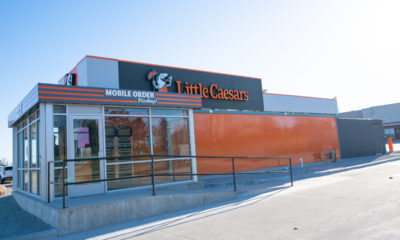An internal memo sent to the board of directors of Wal-Mart Stores Inc. (Bentonville, Ark.) recommends that the retailer hire more part-time workers and discourage the employment of unhealthy workers as a way to hold down spending on health care and other benefits while still minimizing damage to the retailer’s reputation.
According to a report in this morning’s New York Times, a draft memo was obtained from Wal-Mart Watch, a nonprofit group allied with labor unions. Tracy Sefl, a spokeswoman for Wal-Mart Watch, told The Times someone mailed the document anonymously to her group last month.
In the memo, M. Susan Chambers, Wal-Mart’s executive vp for benefits, also recommends reducing 401(k) contributions and wooing younger, and presumably healthier, workers by offering education benefits. The memo voices concern that workers with seven years’ seniority earn more than workers with one year’s seniority, but are no more productive.
To discourage unhealthy job applicants, Chambers suggests that Wal-Mart arrange for “all jobs to include some physical activity (e.g., all cashiers do some cart-gathering).”
One proposal would reduce the amount of time, from two years to one, that part-time employees would have to wait before qualifying for health insurance. Another would put health clinics in stores, in part to reduce expensive employee visits to emergency rooms. Yet another recommended that employees pay more for their spouses’ health insurance. And she called for cutting 401(k) contributions to 3 percent of wages from 4 percent and cutting company-paid life insurance policies to $12,000 from the current level, which is equal to an employee’s annual earnings.
Chambers voiced concern that workers were staying with the company longer, pushing up wage costs, although she stopped short of calling for efforts to push out more senior workers. She wrote that “the cost of an associate with seven years of tenure is almost 55 percent more than the cost of an associate with one year of tenure, yet there is no difference in his or her productivity. Moreover, because we pay an associate more in salary and benefits as his or her tenure increases, we are pricing that associate out of the labor market, increasing the likelihood that he or she will stay with Wal-Mart.”
Advertisement
The memo acknowledged that Wal-Mart had to walk a fine line in restraining benefit costs because critics had already been attacking it for being stingy on wages and health coverage. Chambers acknowledged that 46 percent of the children of Wal-Mart’s 1.33 million United States employees were uninsured or on Medicaid.
Wal-Mart executives acknowledged that the memo was part of an effort to rein in benefit costs, which have soared by 15 percent a year on average since 2002. The proposed plan, if approved, would save the company more than $1 billion a year by 2011. The $285 billion retailer paid $4.2 billion in benefit costs last year, up from $2.8 billion three years earlier,
In an interview, Chambers told The Times she was focusing not on cutting costs, but on serving employees better by giving them more choices on their benefits. “We are investing in our benefits that will take even better care of our associates,” she said. “Our benefit plan is known today as being generous.”
Chambers also said that she made her recommendations after surveying employees about how they felt about the benefits plan. “This is not about cutting,” she said. “This is about redirecting savings to another part of their benefit plans.”

 Headlines1 week ago
Headlines1 week ago
 Headlines1 week ago
Headlines1 week ago
 Headlines1 week ago
Headlines1 week ago
 Designer Dozen2 weeks ago
Designer Dozen2 weeks ago
 Headlines6 days ago
Headlines6 days ago
 Headlines3 days ago
Headlines3 days ago
 Headlines2 weeks ago
Headlines2 weeks ago














